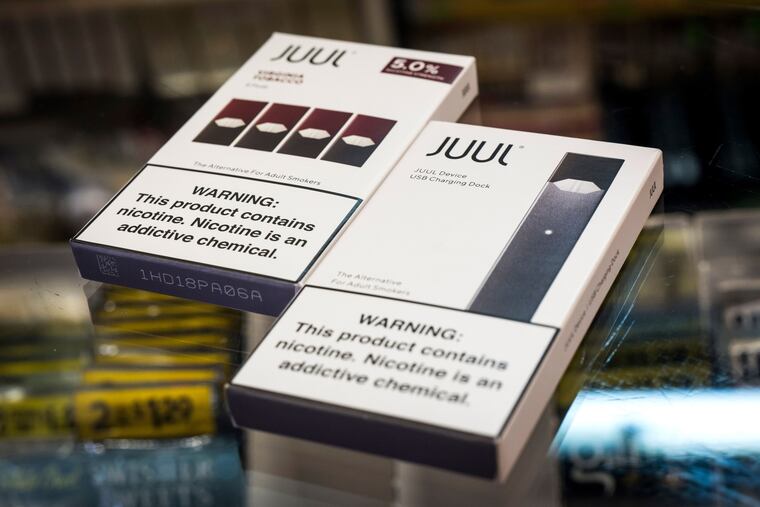Juul has agreed to pay millions in a settlement with Pennsylvania over youth e-cigarette marketing
Since 2014, more American teens have used e-cigarettes than any other tobacco product, according to the CDC.

Juul, the popular electronic cigarette manufacturer, has agreed to pay $38.8 million to Pennsylvania’s Department of Health as part of a settlement in a lawsuit over its marketing practices, brought by the state Attorney General’s office.
The settlement also bars the company from marketing its products to Pennsylvania youths, from placing billboards or other ads within 1,000 feet of a school or public playground, and from claiming in ads that Juul products are safer than traditional tobacco cigarettes, among other restrictions.
Attorney General Josh Shapiro, who is also Pennsylvania’s governor-elect, said in a statement that the company had “knowingly targeted young people with tactics similar to the tobacco companies’ playbook.”
“The progress we’ve made over the years to prevent youth nicotine addiction was at risk of being totally undone by Juul starting what FDA has called a youth vaping epidemic,” he said.
Pennsylvania is one of many states that have sued Juul over its marketing practices. The company will pay $1.7 billion to settle more than 5,000 lawsuits by school districts, local governments, and individuals, primarily in California, according to the Washington Post. In September, Juul paid $438 million to settle a lawsuit brought by 33 states, including New Jersey and Delaware.
As part of all its settlements, Juul has denied wrongdoing and said it did not target minors.
E-cigarettes like those made by Juul are the tobacco product most commonly used by teens, according to the Centers for Disease Control and Prevention. Shapiro said that about 13% of Pennsylvania teenagers have reported using an e-cigarette in the last 30 days.
E-cigarettes work by heating a liquid, usually containing nicotine, to imitate the sensation of cigarette smoke. They produce fewer toxic chemicals than traditional cigarette smoke, but can still contain “harmful and potentially harmful substances,” including carcinogens, according to the CDC. And young people in particular, the CDC says, should avoid nicotine because it can affect brain development and may lead to traditional cigarette smoking in the future.
Previously, companies such as Juul offered e-cigarettes in fruit, candy, and dessert flavors like mango and creme brulee; in 2020, the federal government banned all e-cigarette flavors besides tobacco and menthol. Earlier this year, the Food and Drug Administration briefly halted all sales of Juul, saying the company hadn’t shown its products were safe for any customers. (A federal judge lifted the ban shortly afterward, and Juul is appealing the original FDA order.)
In a statement Monday, a Juul spokesperson said that the settlement represents “a continuation of Juul Labs’ progress to resolve issues from the past.” The company’s mission, the spokesperson said, is to “transition adult smokers away from cigarettes [...] while combating underage use.”
The settlement money will fund a number of anti-tobacco initiatives in Pennsylvania, Shapiro’s office said.